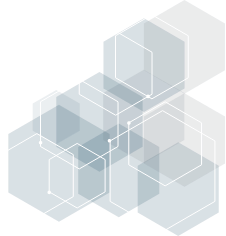





As IT consumption has evolved from a product transaction to an as-a-service model, so too has the way solution provider sales teams engage with customers. No longer can solution providers set themselves apart purely with product knowledge. Cold calling is giving way to social media as a way to connect with prospects. Vertical industry expertise is more important than ever as solutions become bespoke for unique use cases in healthcare and other regulated industry segments.
When the buyer is no longer just the CIO, the selling approaches and skills you use must evolve to meet the new ways customers want to engage. Key research from IPEDs recent Channel Census and Channel Enablement surveys illustrate the task at hand for solution providers.
The new buying team extends beyond the CIO
It used to be that a good relationship with the CIO meant you had visibility to any meaningful IT project your customer was looking to conduct. Today, buyers include line of business executives, chief marketing officers, finance and accounting teams and security staff. These new constituencies are often disconnected from the central IT organization from a planning or budgeting perspective. This means the buyers you'll target and the conversations you'll have will change as well, focusing more on business impact and less on technology.
Roughly 50% of MSPs and 42% of VARs state that the as-a-service model has changed the way they train and develop skills for their sales teams, according to a recent IPED channel enablement study. Your competitors cite a focus on selling business value and outcomes, communicating the financial benefits of solutions and selling recurring revenue services as required skills for future sales success.
To keep skills sharp, your peers estimate members of their sales teams spend between 9-12 days in vendor sales training annually, with sales managers and pre-sales technical resources spending the most time in training. Pre-sales individuals, in particular, are becoming more of a hybrid role, with a combination of technical, industry and even business consulting skills.
Solution providers confirm that this shifting buyer persona is having an impact on how they engage with customers.
Source: IPED Channelytics Channel Census 2019
When looking at sales engagement on a spectrum from pure fulfilment projects to engaging with business leaders on business solutions enabled by technology, your peers report an increase in their level of engagement on "all business solutions". This includes solutions like sales and marketing automation as well as many solutions in IoT to automate the factory floor or secure a facility.
In fact, selling an "all business solution" now edges out "fulfilment" slightly as a percentage of overall engagement. Not surprisingly, 41% of solution providers cited vertical industry training as a top request from vendors.
Sales teams need on-demand access to skills & development training
With the advent of online training, your fellow solution providers are showing a strong preference to reduce the amount of time sales teams are out of the field and are pressing vendors to make training available online, in short chunks, and self-paced. VARs, in particular, juggle many vendor relationships and benefit when they don't have to send sales-people to classroom training.
When it comes to augmenting the sales training received from vendors, your peer solution providers invest in a variety of activities. While more than one quarter retain outside sales training firms to build fundamental skills, more than half train teams on their own internally developed selling methodology.
In addition to the sales curriculum, 38% of solution providers say they leverage role-playing activities to model live sales calls to practice skills like objection handling, and 27% ask reps to memorize standard elevator and sales pitches.
Are you ready for the future of sales?
A new buyer and a new consumption model demand that the sales approach evolve as well. Don't assume that the salespeople who were successful in the past will be successful in the future without the right support and training. Buyers are more educated about the technology they invest in and often absorb a tremendous amount of online content from a vendor before they even make contact with your sales team. Shifting the focus of training to the needs of this new buyer will help maintain your competitive edge in a market shifting toward a more industry expertise-heavy, outcome-based selling model.


